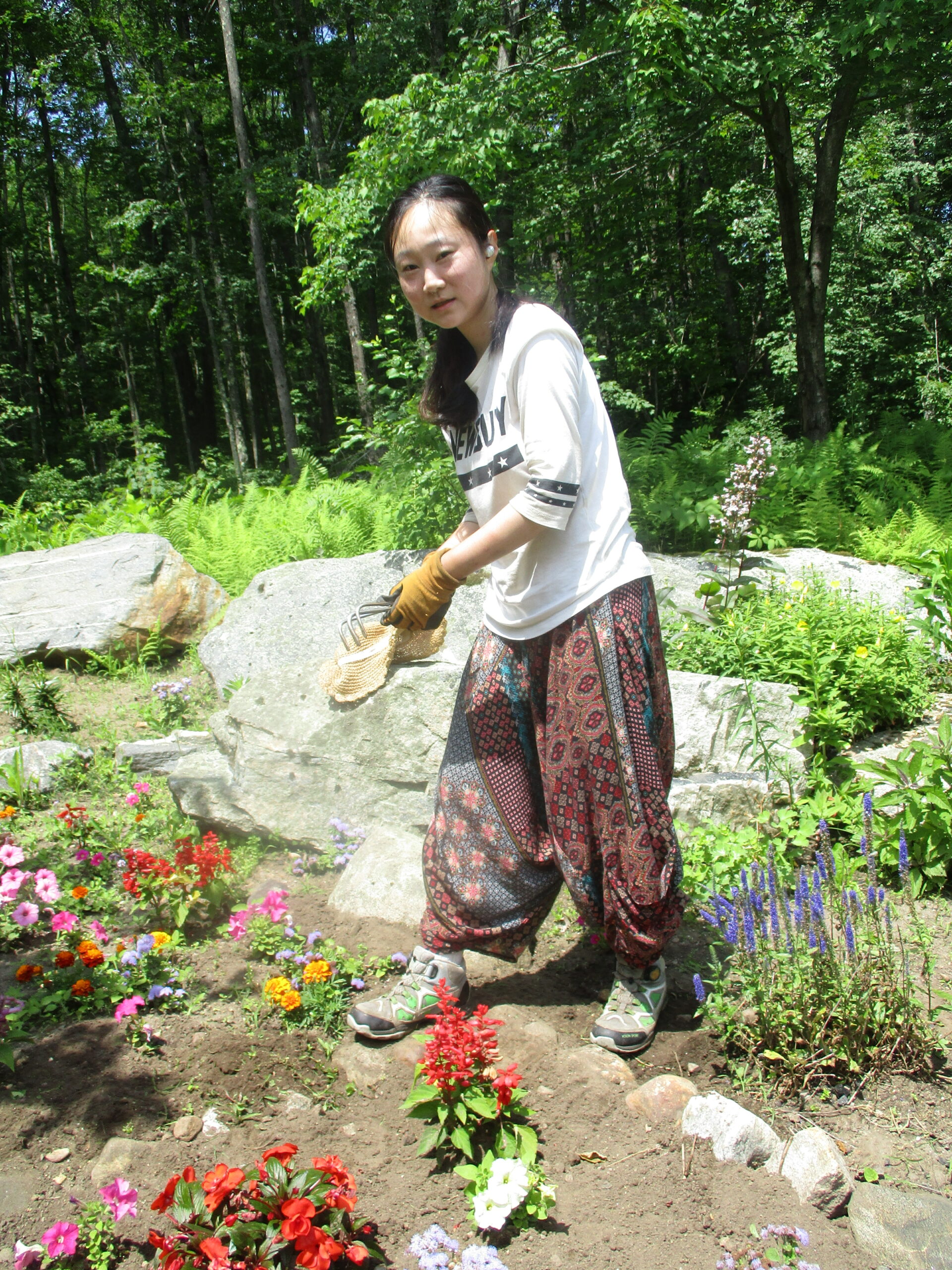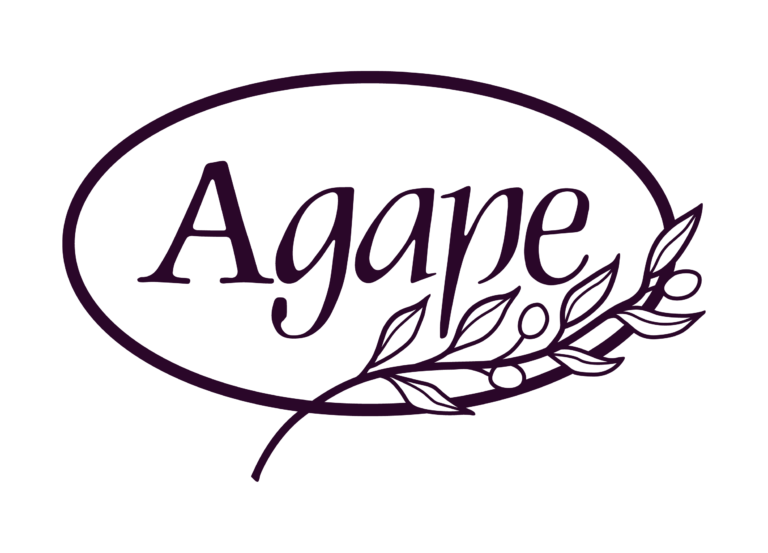Internships offer trips to local lakes, involvement with inner-city youth who come for programs, on-site volunteers, as we stack wood together, plant organic vegetables for the fall harvest, work on outreach in nonviolent education, enjoy the beauties of nature here in the Quabbin Reservoir. We study, think, talk about, pray about and practice a nonviolent lifestyle. Trips to other communities are often planned, reflecting our ongoing desire to stay connected with other small communities of peace.
Each Year Students are an integral part of the ecological aspects of the community, cultivating, planting and harvesting in the organic garden. They also help in building and maintaining of buildings, which include a straw bale house, with solar energy, a compost toilet and wood cook stove. Wood splitting, gathering and stacking are part of the community rhythms as well as filtering vegetable oil for Agape’s automobile that runs on grease from a local restaurant.
Prayer and music complement office work and a daily schedule of homesteading and witness in the local community as well as outreach and programs at area colleges. We use our voices and our instruments as we engage art, music and poetry as key ingredients in lives of practicing nonviolence.


Agape is a vegetarian community, Catholic in practice, ecumenical and interfaith in outreach. Prayer is optional, but encouraged and includes many sources, as well as daily Scripture.
Agape is a lively place to be in the summer, with lots of preparation for the fall and winter on our beautiful 34 acres of land.
Volunteers and short term interns are enthusiastically encouraged. People may join us for a day, a week, a month. Jobs include homesteading, planting, gardening, wood splitting, kindling gathering, office work and outreach to the community, as well as working with youth and other groups who come to Agape for programs.
Interns Share Their Experiences:
Listening to the Silence, by Colleen Putzel
Becoming comfortable with the silence, I have learned, is one of the most important aspects of meditation. It seems as well that becoming comfortable with silence is also an important aspect to life. Silence used to be one of the most terrifying sounds because it allowed all of my thoughts, fears, despairs, and heartaches to enter the forefront of my mind. Silence created emotions which went against the socially regulated feelings of oblivious happiness. Instead of facing the dreaded silence I would fill my mind with noise: conversation, music, television, anything to keep the silence at bay. I ignored reality in order to create my own illusion. By escaping the sadness and burdens of the “real world” I felt I had found the ultimate path to happiness.

The Simple Joys of Life: A reflection on my time at Agape, by Greg Joyce
As I began this immersion experience I had one simple goal for my time at Agape, to absorb everything we did with a positive and enthusiastic attitude. From the moment I arrived at the community I knew that the time spent there would be enriching and enjoyable. I found myself eager to get to work and to take in everything Brayton, Suzanne, Sam, and Martin had to share with us. The eagerness to learn manifested itself in the form of gratitude, not only for the generosity of the community and my fell crusaders, but also for my parents and my mother in particular. As we began our work in the garden, memories rushed back to me of the countless number of weekends spent in my own garden helping my mother to prepare for the coming season. I soon found myself overcome with emotions, an experience I did not expect. Throughout the rest of my time at Agape I continued to reflect on the gratitude I felt for all that my parents had taught me and how those lessons truly helped prepare me for life on my own.
Greg Joyce, Holy Cross 2014
Discovering Simplicity at Agape: Learning what I can live without, by Andy Biedlingmaier
“Look Brayton, that’s an iPod,” Suzanne said, pointing to the sleek music player player perched on the altar of the Francis House chapel. Suzanne, Brayton, their two interns: Martin and Samantha, and our group of eight Holy Cross students were gathered in the cool chapel that fall morning. It was our turn to lead prayer as a Holy Cross group, and we decided to add a contemporary flare to the service with Travis Tritt’s “It’s a Great Day to Be Alive.” But Suzanne’s observation led me to think more about the iPod itself than the song it was playing. I marveled at the stark contrast between the iPod—an icon of our “plugged-in,” technologically-obsessed generation, and the simplicity of the chapel—a room literally cut from the surrounding land and smelling of wood and incense. “Had Suzanne really never seen an iPod before?” I wondered to myself. However, iPods, along with centralized air conditioning and heating systems, dishwashers, cable television, and cheeseburgers are among the many all-American commodities that Suzanne and Brayton have learned to live without.
Andy Biedlingmaier, Holy Cross 2014
Please Fill Out Thoughtfully & Completely
If you are having any issues with the online application form then please fill out and email this version of the application to [email protected]
